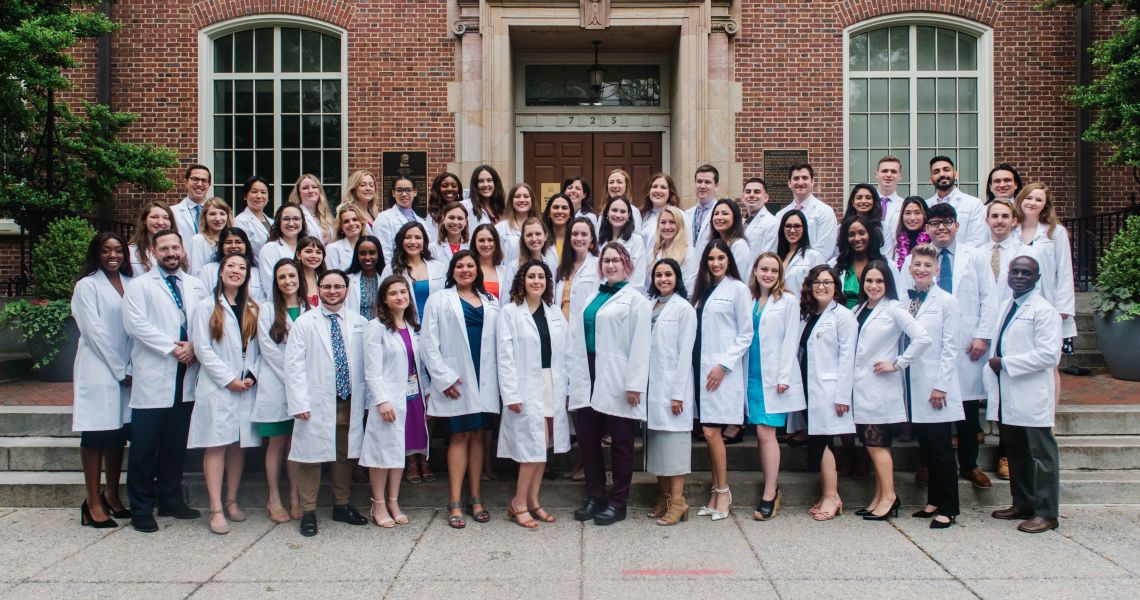
Graduation Requirements
Successful completion of all courses for the traditional PA and PA/MPH programs are required based on the student's specific public health track. In addition, the other graduation requirements are:
Summative Evaluation
Within the four (4) months prior to program completion, students complete a summative evaluation. The aim of the summative evaluation is to verify that each student meets the program competencies required to enter clinical practice. Assessment of a) clinical and technical skills, b) clinical reasoning and problem-solving abilities, c) interpersonal skills, d) medical knowledge, e) professional behaviors, and f) completion of patient encounter competencies are required. The summative evaluation includes three components:
Summative OSCEs
The summative OSCE examination consists of multiple standardized patient (SP) encounters. During each SP encounter, students are required to conduct a focused history and physical examination and communicate their findings, including the presumed diagnosis to the standardized patient. The student may be required to complete a medical record entry or counsel patients to improve health behaviors. Students are evaluated on technical skills, interpersonal and communication skills, clinical decision making, and formulation of an appropriate plan for diagnosis, evaluation, and management. The summative OSCE is a Pass/Fail assessment and must be passed successfully as a graduation requirement.
Comprehensive Knowledge-Based Examination
A comprehensive knowledge-based examination is administered upon completion of PA program coursework. This exam reflects knowledge gained during the course of the PA Program with an emphasis on the areas covered in the first year and the following rotations (inpatient internal medicine, primary care medicine, pediatrics, women’s health, surgery, emergency medicine, and behavioral medicine). The examination is mapped to the NCCPA PANCE blueprint by organ system diagnosis and task areas. A passing score of 70% or higher is required.
Failure to pass any component of the summative evaluation is considered an academic deficiency and will be referred to the Student Progress Committee for review and recommended action up to and including program dismissal.
Professionalism Evaluation
Evaluation of Professionalism is assessed over the duration of enrollment in the PA Program. A final professionalism evaluation with a rating of “Skill Demonstrated” for each parameter of the Professionalism Evaluation must be met at the end of the program of study.
Other Requirements
Clinical Phase Patient Encounter Competencies
Students must have documented the following patient encounters in the specified programmatic database for the clinical phase:
- Encounters by Age
- Encounters by Condition type (acute, chronic, emergent, preventive)
- Encounters by Setting (inpatient, outpatient, emergency department, operative (pre-, intra-, post),
- Other Encounters: prenatal and gynecologic
The clinical faculty monitor student encounter logs for compliance. Students progressing through the clinical phase who are not on target for achieving the patient encounters will be contacted to arrange alternative learning experiences. These additional learning experiences serve to remedy the deficit and may require changes to the rotation and elective placements, which may delay the student’s graduation.